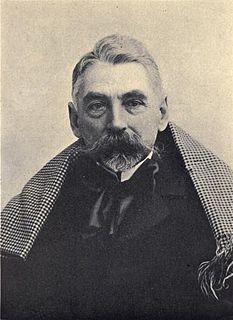A Quote by Claude Monet
I waited for the idea to consolidate, for the grouping and composition of themes to settle themselves in my brain.
Quote Topics
Related Quotes
Are people crazy? People waited all their lives. They waited to live, they waited to die. They waited in line to buy toilet paper. They waited in line for money. And if they didn't have any money they waited in longer lines. You waited to go to sleep and then you waited to awaken. You waited to get married and you waited to get divorced. You waited for it to rain, you waited for it to stop. You waited to eat and then you waited to eat again. You waited in a shrink's office with a bunch of psychos and you wondered if you were one.
There is also a particular area of sleep called slow-wave sleep. I immediately liked this idea. It turns out this part of sleep is where the brain basically gets into step with itself and gets into this one single phase of these relatively slow brain waves - around 10 Hz or so - and the whole brain 'fires all at once'. This is a brilliant bit of sleep where we consolidate memory and learning, and memory is one of my obsessions really.
If somebody asks me about the themes of something I'm working on, I never have any idea what the themes are. . . . Somebody tells me the themes later. I sort of try to avoid developing themes. I want to just keep it a little bit more abstract. But then, what ends up happening is, they say, 'Well, I see a lot here that you did before, and it's connected to this other movie you did,' and . . . that almost seems like something I don't quite choose. It chooses me.
The elegant study... is consistent with the themes of modern cognitive neuroscience . Every aspect of thought and emotion is rooted in brain structure and function, including many psychological disorders and, presumably, genius. The study confirms that the brain is a modular system comprising multiple intelligences, mostly nonverbal.
Composition is a side issue. Its role in my selection of photographs is a negative one at best. By which I mean that the fascination of a photograph is not in its eccentric composition but in what it has to say: its information content. And, on the other hand, composition always also has its own fortuitous rightness.







































